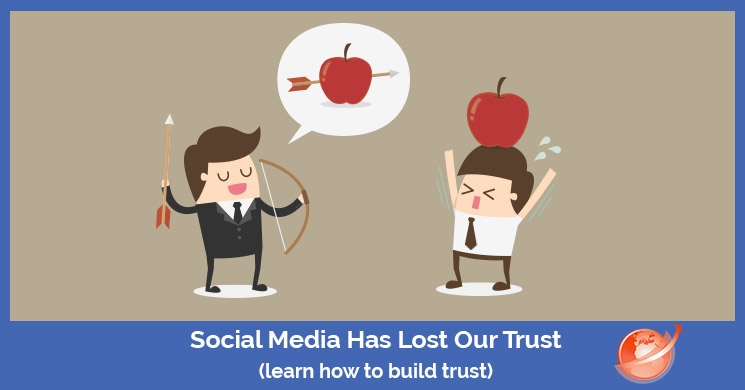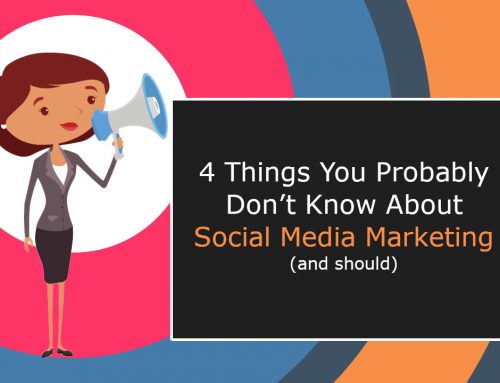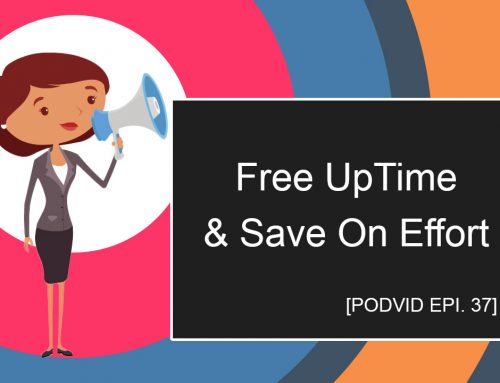Content farms, paid influencers, fake news, and the sale of our private data to third party companies… How can marketers come back from such a mess, where the public trusts no one?
Our Top 25 Content Resources; including Ideas & Inspiration
Every marketer knows about what’s gone down with social media moguls like Facebook lately, or at least every marketer who wants to make sales because a good marketer knows that social media provides plenty of the traffic to get those sales. Facebook sold data to a third party company who then used it to subtley influence those users. Nobody wants their private data (and Facebook has a LOT of it) sold to another company who sells it to another, which is how identity theft happens, phishing, scams, and plenty more that is worse.
People feel that if Facebook is doing this, then who else is? It’s probably easier to ask who isn’t.This is affecting all social media platforms right down to little Snapchat, whose users were first furious with changes they didn’t want or need, then with tasteless posts which made celebrities tell people to dump the app, and it is all on top of the deep sense of distrust seeping into every social media platform.
PROBLEM #1
Content farms are the cheap places someone can hire a writer to create high amounts of low-quality posts. These writers are typically not native English speakers, nor possessing of skills which would set them on par with one who does speak English as their first language. The posts are full of spelling errors, grammar errors and sometimes they make no sense at all and are purely stuffed full of keywords.
Keyword stuffing is something that was done when SEO was still able to be tailored and tweaked by SEO experts in the field. That, however, was years and many updates to their algorithm later (Google) and it has been many years since anyone could promise SEO ranking results in Google.
Some are still trying it however, news moves slower in some places of the world after all, and you do get what you pay for. Content farms are not the answer, nobody will be engaging with the content, and that’s a big problem. If it is written badly it turns people off, sends them away, and makes you look terrible. What kind of company doesn’t care to the point that they would post garbage simply to have something? That’s the public mindset and not a flattering view of the company sending out these mass blunders.
SOLUTION:
Quality – More is not better. Less is more when it comes to good content writing. It’s not about the word count, or how many keywords a person can stuff in without it sounding fake, it’s about making an actual connection with the reader, by delivering them content which suits their wants and needs, and will make their life easier or better. The content posted by your company should always strive to deliver value and quality to the intended audience.
In terms of buying, engagement is a far better indicator of the success of a product launch or any push to sell than simply a ‘like’ on a post. Even fewer will actually comment on the post, and fewer yet will share it.
If you want to aim high, aim for all three: Quality not quantity, value to the customer, and high rates of engagement.
PROBLEM #2
Paid influencers have left the public uncertain what to believe. Kylie Jenner is a great example of a well-known name, which is also used when talking about makeup among fans. She regularly posts tutorials and other vlogs – as well as participating in paid advertising as well.
Her name is what sells things. If Kylie Jenner has put her stamp of approval on this Urban Decay palette … well, surely it’s worth it. People justify spending more on a product endorsed by one of their favorite celebrities because their endorsement lends false trust to the company or person. If that product were a lesser product like Wet ‘n Wild, and she’d given her stamp of approval to it – only for fans to learn it doesn’t work that well, and their faith has been bruised… it makes the fans wonder who they can actually trust.
Influencers are supposed to include some sort of disclaimer which would tell the viewer that they’ve been paid for the post/vlog, and that all opinions/statements within are their own. The trouble is, a vast majority pick and choose where to disclose that, and some don’t disclose at all even if they’re supposed to.
This has left the public uncertain of who to trust, because bought opinions aren’t honest, which means they’re not real at all. This can result in the influencer losing fans and the company losing customers.
SOLUTION:
Work directly with an influencer. Be sure you are clear that they’re announcing they were paid to give their opinion.
Be aware of who you’re marketing to. Millenials distrust social media more than any generation before and are quick to be rid of it. They’re being called social skeptics and they prefer word of mouth or influencer endorsements over nearly every other kind of “news”.
This means that if you’re going to hire an influencer, they should be both influential and also honest. They need to be aware that they must disclose that they’re being paid to promote a product or service.
Provided a company works directly with their influencer, things are less able to go awry.
Your social media campaigns from a FREE TO USE dashboard
OR
Let us save you time by creating content and posting to your social profiles for you

PROBLEM #3
Fake news is less of a chaotic mess in the USA than in other places of the world, for whom getting internet access is still troublesome… but it doesn’t mean that people from the USA are any better at telling fake news apart from real news.
One of our favorites this past week was the fake news that Elon Musk (the Creative mind behind Tesla & Space X) wanted to buy Facebook just to shut it down.
Fake news spreads faster than real news and is sensational enough that people want to believe in it, good or ill – and most often, to spread the news to those they know. There’s something of a ‘I’m the first person to know this, I don’t see anyone else having said anything so I’ll look clever by posting it’ within fake news sharing.
Everyone wants to be the one who heard it first.
The news is something that people place a lot of inherent trust within, by virtue of it BEING news, but with the rapid expansion of the internet, plenty of fake news sites appear real enough to fool plenty of people.
The spread of news affects people sociologically as well, by breaking or weakening human ties to one another, creating hostility and adversity, fanning the flames of a polarizing topic or worse.
When it is uncovered as being fake news, people feel embarrassed for having fallen for it, and blame Facebook or YouTube or whoever else delivered it for the faulty information.
SOLUTION:
There are sites like Snopes and Hoaxslayer which can uncover the truth of a news story that sounds a bit abnormal, a bit too shocking, or a bit too good to be true. Barring that, there are image searches you can do on Google Images, by clicking on the photo of any article appearing on your news feed (any static image) and then searching Google for the image.
This can help prevent you from looking badly when spreading fake news because you just didn’t know it was fake to begin with.
It will save your company from appearing ridiculous for sharing something which has no real merit.
PROBLEM #4
A person’s privacy is not a bargaining chip to sell to another company but that’s what Facebook did and plenty of others have surely done before. Facebook introduced the idea of advertising based on people’s data, and it has worked so well that it became the one best model for social media marketing.
This has resulted in even more lost trust, and it feels like a final blow.
SOLUTION:
If you want to remain safe online, stay offline.
That’s really the only way a person can ensure privacy online, and this is not to say that information about you wouldn’t be on there anyway even if you weren’t yourself because there is plenty of data about a person which is considered ‘public record’ and anyone can see it. The point is – ignorance, in this case, can be bliss.
If someone has any sort of online presence at all, they should set their controls and settings to as private as they can make it, and also be careful where they share their data or what apps they give permission to.
“Trust is hard won but easily lost. Once gone it is hard to earn back. Depending on how the trust was broken, it may never come back at all.”
NOT TOO LATE
Being hypervigilant or abandoning all social media isn’t the answer, and those who bail from social media will return when they realize it’s not going anywhere regardless how many changes happen.
Social media as we know it may change so drastically but in the end, what has begun cannot truly be stopped, it may just morph into a higher tech item, but social media has proven to be the greatest thing to happen to marketers and advertisers.
Even the public who are on social media finds value in it still. Where else can they keep up with the lives of their family or friends who they may not get to speak to daily?
Social media made the world a much smaller place, but it seems to be here to stay because the public’s attention span is pretty small.
They’re in hot water right now sure, but they’re completely able to turn it around in a year, just like Google did this same time last year.
Don’t lose faith just yet, there is still plenty to come from social media land.







![Do you know BERT? [Google SEO]](https://magiwebsa.com/wp-content/uploads/2019/11/podvid-epi35-cover-500x383.jpg)